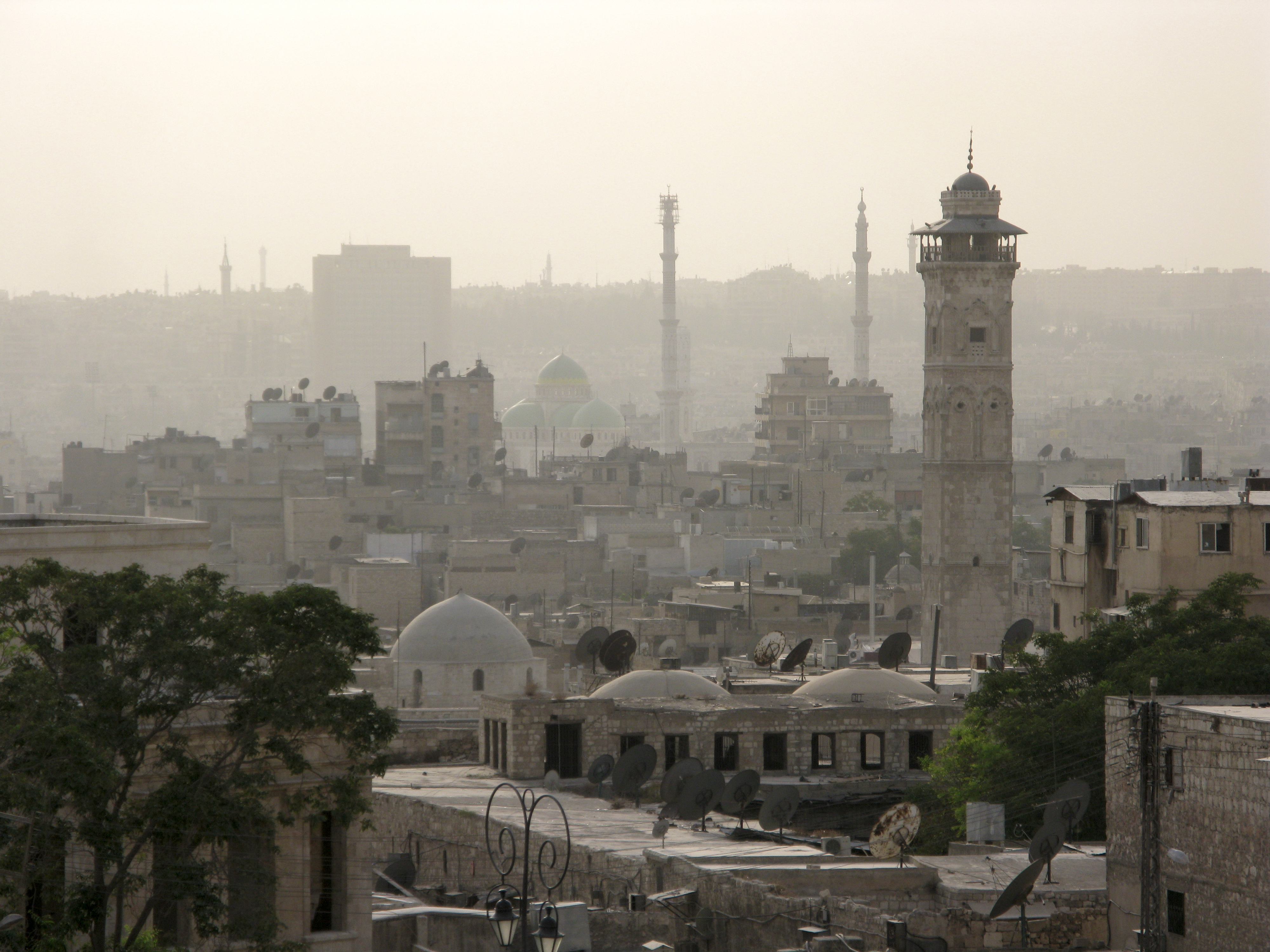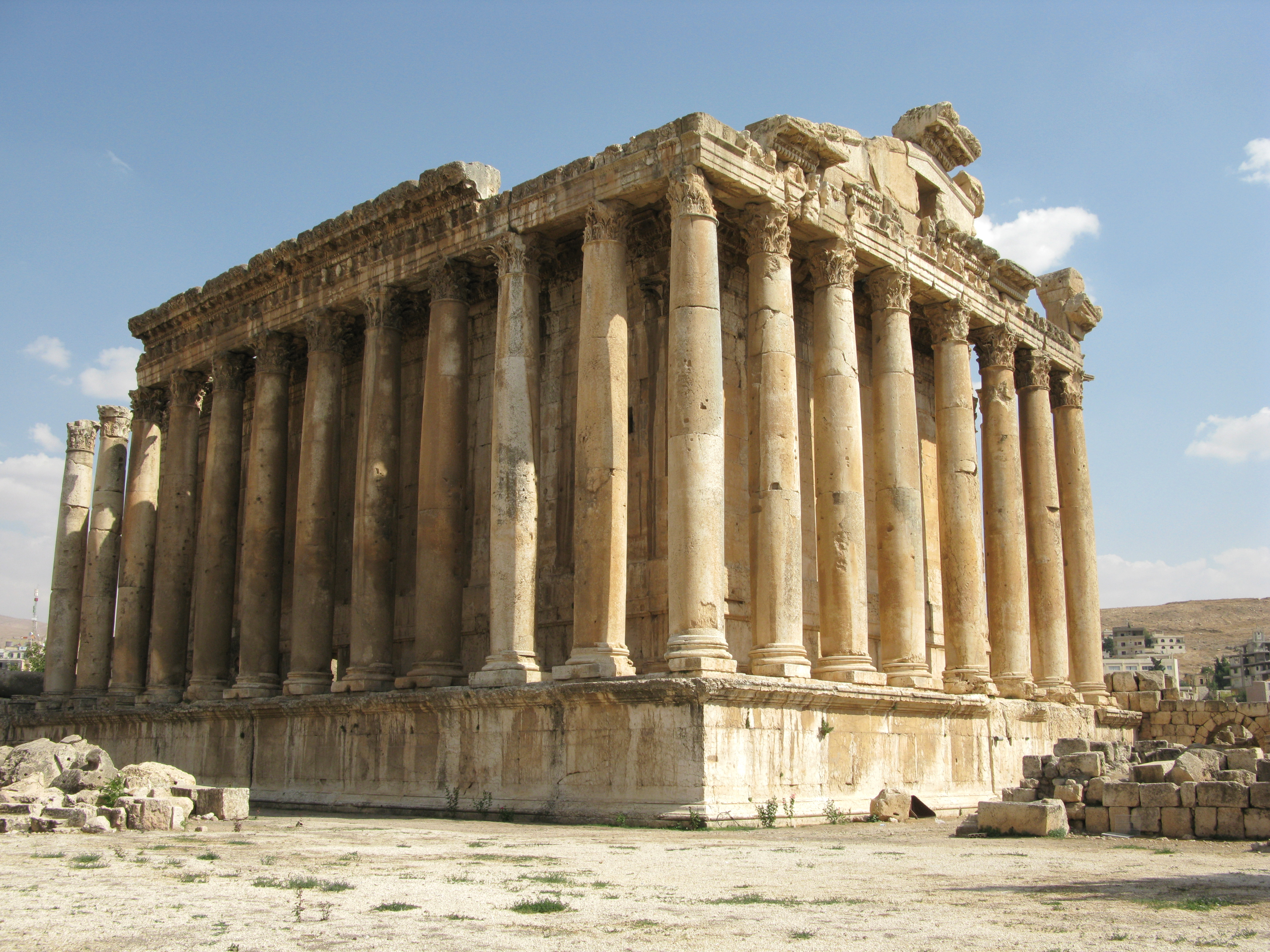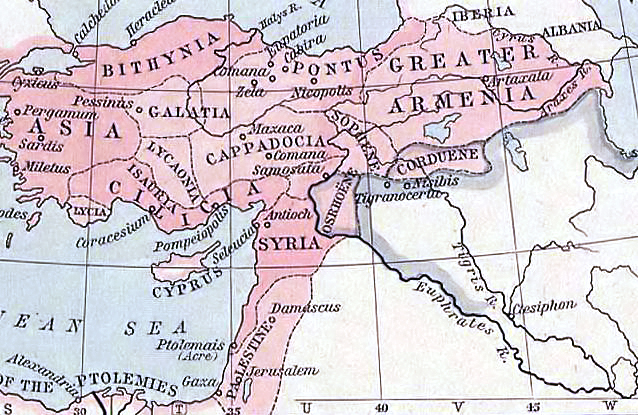|
Aram-Zobah
Zobah or Aram-Zobah ( ʾ''Ărām-Ṣōḇāʾ'') was an early Aramean state mentioned in the Hebrew Bible, which extended north-east of biblical King David's realm. A. F. Kirkpatrick, in the Cambridge Bible for Schools and Colleges (1896), places it broadly between Damascus and the Euphrates.Kirkpatrick, A. F.Cambridge Bible for Schools and Colleges on 1 Samuel 14 accessed 26 July 2019 It is thought by some to have extended from the Beqaa Valley along the eastern side of the Anti-Lebanon Mountains, reaching Hamath to the north and Damascus to the south, making it at one time a state of considerable importance. In the Hebrew Bible In I Samuel, the kings of Zobah were said to have fought with Israelite king Saul (). Kirkpatrick suggests that "the 'kings' were apparently independent chiefs", but by the time of King David there was a single king, Hadadezer bar Rehob. Later, King Hadadezer bar Rehob allied with Ammon against King David, who defeated Zobah and made the kingdom ... [...More Info...] [...Related Items...] OR: [Wikipedia] [Google] [Baidu] |
|
|
Psalm 60
Psalm 60 is the 60th psalm of the Book of Psalms, beginning in English in the King James Version: "O God, thou hast cast us off, thou hast scattered us". In the slightly different numbering system of the Greek Septuagint version of the Bible and the Latin Vulgate, this psalm is Psalm 59. In Latin, it is known as "Deus reppulisti nos et destruxisti nos". It is addressed "to the chief Musician upon Shushan Eduth", referring to the title of a song, presumably identifying the intended melody, mentioned only here and in Psalm 80, and described as "a Michtam of David, when he strove with Aramnaharaim and with Aramzobah, when Joab returned, and smote of Edom in the valley of salt twelve thousand." The heading text in the Revised Standard Version and the New American Bible Revised Edition refers to Aram-Zobah, whereas in the New King James Version the reference is to Zobah. The psalm has been called a psalm of communal lament. The psalm forms a regular part of Jewish, Catholic, Luther ... [...More Info...] [...Related Items...] OR: [Wikipedia] [Google] [Baidu] |
|
 |
Damascus
)), is an adjective which means "spacious". , motto = , image_flag = Flag of Damascus.svg , image_seal = Emblem of Damascus.svg , seal_type = Seal , map_caption = , pushpin_map = Syria#Mediterranean east#Arab world#Asia , pushpin_label_position = right , pushpin_mapsize = , pushpin_map_caption = Location of Damascus within Syria , pushpin_relief = 1 , coordinates = , subdivision_type = Country , subdivision_name = , subdivision_type1 = Governorate , subdivision_name1 = Damascus Governorate, Capital City , government_footnotes = , government_type = , leader_title = Governor , leader_name = Mohammad Tariq Kreishati , parts_type = Municipalities , parts = 16 , established_title = , established_date ... [...More Info...] [...Related Items...] OR: [Wikipedia] [Google] [Baidu] |
 |
Aleppo
)), is an adjective which means "white-colored mixed with black". , motto = , image_map = , mapsize = , map_caption = , image_map1 = , mapsize1 = , map_caption1 = , pushpin_map = Syria#Mediterranean east#Asia#Syria Aleppo , pushpin_label_position = left , pushpin_relief = yes , pushpin_mapsize = , pushpin_map_caption = Location of Aleppo in Syria , coordinates = , subdivision_type = Country , subdivision_name = , subdivision_type1 = Governorate , subdivision_type2 = District , subdivision_type3 = Subdistrict , subdivision_name1 = Aleppo Governorate , subdivision_name2 = Mount Simeon (Jabal Semaan) , subdivision_name3 = Mount Simeon ... [...More Info...] [...Related Items...] OR: [Wikipedia] [Google] [Baidu] |
 |
United Monarchy
The United Monarchy () in the Hebrew Bible refers to Israel and Judah under the reigns of Saul, David, and Solomon. It is traditionally dated to have lasted between and . According to the biblical account, on the succession of Solomon's son Rehoboam, the United Monarchy would have split into two separate kingdoms: the Kingdom of Israel in the north, containing the cities of Shechem and Samaria; and the Kingdom of Judah in the south, containing the city of Jerusalem and the Jewish Temple. However, whether or not the United Monarchy actually existed is a matter of ongoing academic debate. In the 1990s, Israeli archaeologist Israel Finkelstein contested that existing archaeological evidence for the United Monarchy in the 10th century BCE should actually be dated to the 9th century BCE. This model placed the biblical kingdom in Iron Age I, suggesting that it was not functioning as a country under centralized governance but rather as tribal chiefdom over a small polity in Judah, ... [...More Info...] [...Related Items...] OR: [Wikipedia] [Google] [Baidu] |
 |
Beqaa Valley
The Beqaa Valley ( ar, links=no, وادي البقاع, ', Lebanese ), also transliterated as Bekaa, Biqâ, and Becaa and known in classical antiquity as Coele-Syria, is a fertile valley in eastern Lebanon. It is Lebanon's most important farming region. Industry also flourishes in Beqaa, especially that related to agriculture. The Beqaa is located about east of Beirut. The valley is situated between Mount Lebanon to the west and the Anti-Lebanon Mountains to the east. It forms the northeasternmost extension of the Great Rift Valley, which stretches from Syria to the Red Sea. Beqaa Valley is long and wide on average. It has a Mediterranean climate of wet, often snowy winters and dry, warm summers. The region receives limited rainfall, particularly in the north, because Mount Lebanon creates a rain shadow that blocks precipitation coming from the sea. The northern section has an average annual rainfall of , compared to in the central valley. Nevertheless, two riv ... [...More Info...] [...Related Items...] OR: [Wikipedia] [Google] [Baidu] |
 |
Aramean
The Arameans ( oar, 𐤀𐤓𐤌𐤉𐤀; arc, 𐡀𐡓𐡌𐡉𐡀; syc, ܐܪ̈ܡܝܐ, Ārāmāyē) were an ancient Semitic-speaking people in the Near East, first recorded in historical sources from the late 12th century BCE. The Aramean homeland was known as the land of Aram and encompassed central regions of modern Syria. At the beginning of the 1st millennium BCE, a number of Aramean states were established throughout the western regions of the ancient Near East. The most notable was the Kingdom of Aram-Damascus, which reached its height in the second half of the 9th century BCE during the reign of king Hazael. A distinctive Aramaic alphabet was developed and used to write the Old Aramaic language. During the 8th century BCE, local Aramean kingdoms were gradually conquered by the Neo-Assyrian Empire. The policy of population displacement and relocation that was applied throughout Assyrian domains also affected Arameans, many of whom were resettled by Assyrian auth ... [...More Info...] [...Related Items...] OR: [Wikipedia] [Google] [Baidu] |
 |
King David
David (; , "beloved one") (traditional spelling), , ''Dāwūd''; grc-koi, Δαυΐδ, Dauíd; la, Davidus, David; gez , ዳዊት, ''Dawit''; xcl, Դաւիթ, ''Dawitʿ''; cu, Давíдъ, ''Davidŭ''; possibly meaning "beloved one". was, according to the Hebrew Bible, the third king of the United Kingdom of Israel. In the Books of Samuel, he is described as a young shepherd and harpist who gains fame by slaying Goliath, a champion of the Philistines, in southern Canaan. David becomes a favourite of Saul, the first king of Israel; he also forges a notably close friendship with Jonathan, a son of Saul. However, under the paranoia that David is seeking to usurp the throne, Saul attempts to kill David, forcing the latter to go into hiding and effectively operate as a fugitive for several years. After Saul and Jonathan are both killed in battle against the Philistines, a 30-year-old David is anointed king over all of Israel and Judah. Following his rise to power, David ... [...More Info...] [...Related Items...] OR: [Wikipedia] [Google] [Baidu] |
 |
Euphrates
The Euphrates () is the longest and one of the most historically important rivers of Western Asia. Together with the Tigris, it is one of the two defining rivers of Mesopotamia ( ''the land between the rivers''). Originating in Turkey, the Euphrates flows through Syria and Iraq to join the Tigris in the Shatt al-Arab, which empties into the Persian Gulf. Etymology The Ancient Greek form ''Euphrátēs'' ( grc, Εὐφράτης, as if from Greek εὖ "good" and φράζω "I announce or declare") was adapted from Old Persian 𐎢𐎳𐎼𐎠𐎬𐎢 ''Ufrātu'', itself from Elamite 𒌑𒅁𒊏𒌅𒅖 ''ú-ip-ra-tu-iš''. The Elamite name is ultimately derived from a name spelt in cuneiform as 𒌓𒄒𒉣 , which read as Sumerian is "Buranuna" and read as Akkadian is "Purattu"; many cuneiform signs have a Sumerian pronunciation and an Akkadian pronunciation, taken from a Sumerian word and an Akkadian word that mean the same. In Akkadian the river was called ''Puratt ... [...More Info...] [...Related Items...] OR: [Wikipedia] [Google] [Baidu] |
|
Ashurbanipal
Ashurbanipal (Neo-Assyrian cuneiform: , meaning "Ashur is the creator of the heir") was the king of the Neo-Assyrian Empire from 669 BCE to his death in 631. He is generally remembered as the last great king of Assyria. Inheriting the throne as the favored heir of his father Esarhaddon, Ashurbanipal's 38-year reign was among the longest of any Assyrian king. Though sometimes regarded as the apogee of ancient Assyria, his reign also marked the last time Assyrian armies waged war throughout the ancient Near East and the beginning of the end of Assyrian dominion over the region. Esarhaddon selected Ashurbanipal as heir 673. The selection of Ashurbanipal bypassed the elder son Shamash-shum-ukin. Perhaps in order to avoid future rivalry, Esarhaddon designated Shamash-shum-ukin as the heir to Babylonia. The two brothers jointly acceded to their respective thrones after Esarhaddon's death in 669, though Shamash-shum-ukin was relegated to being Ashurbanipal's closely monitored vass ... [...More Info...] [...Related Items...] OR: [Wikipedia] [Google] [Baidu] |
|
 |
Books Of Kings
The Book of Kings (, '' Sēfer Məlāḵīm'') is a book in the Hebrew Bible, found as two books (1–2 Kings) in the Old Testament of the Christian Bible. It concludes the Deuteronomistic history, a history of Israel also including the books of Joshua, Judges and Samuel. Biblical commentators believe the Books of Kings were written to provide a theological explanation for the destruction of the Kingdom of Judah by Babylon in c. 586 BCE and to provide a foundation for a return from Babylonian exile.Sweeney, p1/ref> The two books of Kings present a history of ancient Israel and Judah, from the death of King David to the release of Jehoiachin from imprisonment in Babylon—a period of some 400 years (). Scholars tend to treat the books as consisting of a first edition from the late 7th century BCE and of a second and final edition from the mid-6th century BCE.Fretheim, p. 7 Contents The Jerusalem Bible divides the two Books of Kings into eight sections: *1 K ... [...More Info...] [...Related Items...] OR: [Wikipedia] [Google] [Baidu] |
 |
Nusaybin
Nusaybin (; '; ar, نُصَيْبِيْن, translit=Nuṣaybīn; syr, ܢܨܝܒܝܢ, translit=Nṣībīn), historically known as Nisibis () or Nesbin, is a city in Mardin Province, Turkey. The population of the city is 83,832 as of 2009 and is predominantly Kurdish. Nusaybin is separated from the larger Kurdish-majority city of Qamishli by the Syria–Turkey border. The city is at the foot of the Mount Izla escarpment at the southern edge of the Tur Abdin hills, standing on the banks of the Jaghjagh River (), the ancient Mygdonius ( grc, Μυγδόνιος). The city existed in the Assyrian Empire and is recorded in Akkadian inscriptions as ''Naṣibīna''. Having been part of the Achaemenid Empire, in the Hellenistic period the settlement was re-founded as a ''polis'' named "Antioch on the Mygdonius" by the Seleucid dynasty after the conquests of Alexander the Great. A part of first the Roman Republic and then the Roman Empire, the city (; ) was mainly Syriac-speaking, ... [...More Info...] [...Related Items...] OR: [Wikipedia] [Google] [Baidu] |
 |
Book Of Psalms
The Book of Psalms ( or ; he, תְּהִלִּים, , lit. "praises"), also known as the Psalms, or the Psalter, is the first book of the ("Writings"), the third section of the Tanakh, and a book of the Old Testament. The title is derived from the Greek translation, (), meaning "instrumental music" and, by extension, "the words accompanying the music". The book is an anthology of individual Hebrew religious hymns, with 150 in the Jewish and Western Christian tradition and more in the Eastern Christian churches. Many are linked to the name of David, but modern mainstream scholarship rejects his authorship, instead attributing the composition of the psalms to various authors writing between the 9th and 5th centuries BC. In the Quran, the Arabic word ‘Zabur’ is used for the Psalms of David in the Hebrew Bible. Structure Benedictions The Book of Psalms is divided into five sections, each closing with a doxology (i.e., a benediction). These divisions were probably intro ... [...More Info...] [...Related Items...] OR: [Wikipedia] [Google] [Baidu] |